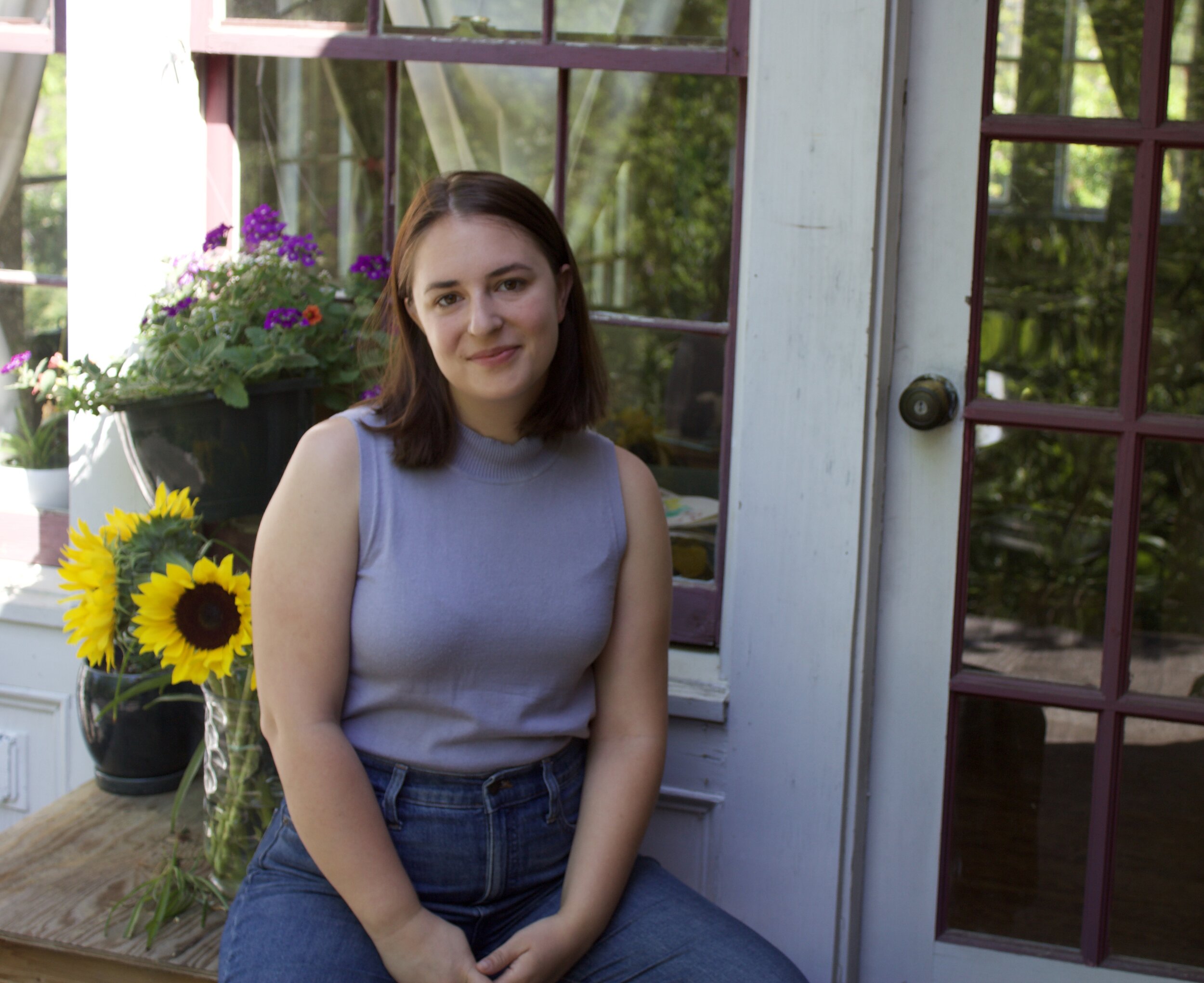Meet our new poetry instructor, Melanie Tafejian
We asked Melanie Tafejian, who will be teaching our new August class, “The Power of Food Imagery in Poetry,” about inspiration, recently read books, and for a sneak peak into the course. Melanie holds an MFA in Poetry from North Carolina State University where she won the 2020 North Carolina State Poetry Contest. Read on to find out what Melanie had to say on these topics and more!
What are you currently reading?
I’m currently reading The Liars Club by Mary Karr. I’m definitely a sucker for a good memoir and the The Liars Club seems to show up everywhere as a significant book in the history of contemporary American memoir. It’s a book I’ve been meaning to read for a long time and I’m finally getting around to it.
I am also reading Salt by Mark Kurlansky. It’s a world history of salt. I have a little obsession with salt and this book considers the historical, political, and culinary implications of salt.
In terms of poetry, I just finished Philip Metres’ Shrapnel Maps. It’s a stunning book that covers the Israeli- Palestinian conflict through various voices and poetic forms.
I have also been reading the collected works of Galway Kinnell. I love reading the collected works of a poet, you can really get a sense of the way their work progressed over a lifetime.
What is the best, or worst, piece of advice you’ve gotten about how to write poetry?
One of the worst pieces of advice I have ever gotten is that if you don’t write every day then you’re not a “real writer.” At the time, hearing this sort of debilitated me. I knew I loved poetry but I also knew that writing a poem every day sounded unreasonably difficult.
I can see now how ridiculous point of view is. I certainly do not write every day. I often keep journals with me when I am out and about or even take notes on my phone, but sitting down to write a poem does not happen every day for me.
Every writer is different, some write every day and that works for them. For me, I have found the advice to pay attention to the world with the eyes of a poet to be incredibly useful. If you’re taking note in your mind as you move about your life, when you finally sit down to write, the images and inspiration will be there.
What is a recent poem you’ve especially enjoyed and why?
I recently tuned in to hear my mentor Eduardo C. Corral in a virtual conversation with Ocean Vuong. Eduardo read his poem “Ceremonial.” It’s a poem I had read before but hearing it last night brought me to read it again this morning. The poem takes surprising turns, an unveiling of beauty and self-loathing. The poem is a reminder to me of the way form can slowly unveil image and meaning.
Where do you get your inspiration from?
My inspiration is rooted in the world around me and the places I have been. The speakers of my poems may find themselves in the olive groves of Albania or with cold feet in a lake in Washington State.
I think a certain amount of solitude is essential to the writing of a poem. In order to get inspired sometimes it’s necessary to spend some time alone.
Another useful piece of poem writing advice, follow your obsessions! That’s where the inspiration resides. If a certain image comes to me again and again I get the sense it will find its way into my poems.
Tell us a little about the "Food Imagery in Poetry" course. How did you come up with the idea? What do you hope students will take from the class?
I’ve always been obsessed with food. Before applying to MFA programs, I considered going to culinary school. I love being around every aspect of food, the growing, the cooking, the eating, the community. It’s no surprise that food has found a way into much of my own poetry.
My mentor Dorianne Laux likes to say that all poems are about sex or death. This feels true, and I think food does a good job of incorporating both sex and death. A fresh peach is surely sex, and birth, and life. But it is all fleeting, that peach will mold on the counter before we know it. It will become food for the flies, and then a pit planted to make more life.
For me, food offers elements that are essential to poetry. There is color, smell, taste, image. But also, much deeper meaning. Food is where we go to connect with others, it is how we celebrate, it is how we mourn.
One week of the class will be devoted to poems centered around eating with our dead. How can we remember those who have passed by bringing them into the kitchens and dining room tables of our poems?
I hope students will leave the class with a deeper knowledge of poets they may not have read before. Also, I think the course will help students to look at their own life and world in a hyper-focused way centered around food. They may begin to write about food in a way they had never imagined before. Importantly, I want them to walk away from the class with poems that they feel proud of.
Join Melanie in her upcoming “Power of Food Imagery in Poetry” course, beginning August 18!
